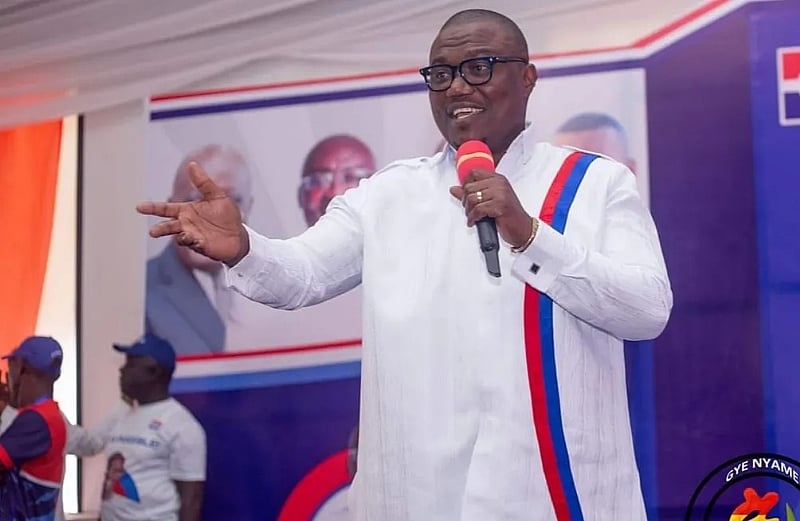The #KenMustGo campaign, spearheaded by a faction of New Patriotic Party (NPP) Members of Parliament (MPs) in late 2022, represented a significant internal revolt against the leadership of President Nana Addo Dankwa Akufo-Addo and his then-Finance Minister, Ken Ofori-Atta. Driven by mounting public dissatisfaction with the country’s economic downturn, the campaign reflected a deep-seated frustration within the ruling party itself. Dr. Nana Ayew Afriye, MP for Effiduase Asokore and a participant in the movement, characterized the campaign as a last resort, born out of the perceived deafness of the President and party executives to the growing chorus of concerns both within and outside the NPP. The MPs believed that Ofori-Atta had become a symbol of the economic hardship and that his removal was crucial to restoring public confidence and salvaging the party’s image.
The campaign’s genesis lay in the widespread economic challenges facing Ghana, which included rising inflation, a depreciating currency, and increasing public debt. The MPs, reflecting the sentiments of their constituents and party members, argued that Ofori-Atta’s economic policies were exacerbating the crisis. They felt their concerns, expressed privately and publicly, were being ignored by the President, leading to the dramatic and unprecedented step of publicly demanding the dismissal of a key cabinet minister. This open dissent within the ruling party underscored the gravity of the situation and the MPs’ conviction that drastic action was necessary to avert further economic and political damage. The #KenMustGo movement, therefore, wasn’t simply about removing a finance minister; it was about demonstrating accountability and responsiveness to the public’s concerns.
According to Dr. Afriye, the movement became a defining moment for the NPP, a “make or break” scenario. The public spectacle of MPs openly rebelling against their own government was unprecedented in Ghana’s political history, highlighting the depth of the internal divisions and the urgency of the situation. The MPs felt compelled to take this extraordinary step, believing that the party’s credibility and future electoral prospects were at stake. They argued that the removal of Ofori-Atta would send a clear signal to the public that the government was listening to their concerns and willing to take decisive action to address the economic challenges. This act of defiance, while potentially damaging to party unity in the short term, was seen as essential for the long-term survival and success of the NPP.
The campaign, initiated in October 2022, was formally launched with a petition signed by approximately 80 NPP MPs, led by Andy Kwame Appiah-Kubi, MP for Asante-Akim North. The petition explicitly called for Ofori-Atta’s dismissal, citing the need to restore public trust and confidence in the government’s economic management. The large number of signatories demonstrated the significant support for the movement within the NPP parliamentary caucus. It also put immense pressure on President Akufo-Addo, who faced a potential rebellion from a substantial portion of his own party. This direct challenge to the President’s authority underscored the MPs’ resolve and their belief that the situation demanded immediate and decisive action.
The MPs’ demands went beyond the simple removal of Ofori-Atta. They also threatened to boycott the 2023 Budget presentation if their demands were not met. This threat carried significant weight, as it could have jeopardized the government’s ability to pass crucial financial legislation. It demonstrated the MPs’ willingness to use their parliamentary power to force the President’s hand and underscored the seriousness of their commitment to the #KenMustGo campaign. This was not merely a symbolic protest; it was a tactical maneuver designed to exert maximum pressure on the President and achieve their objective.
In essence, the #KenMustGo campaign was a complex manifestation of internal party dynamics, economic pressures, and public sentiment. It reflected a growing divide within the NPP, with a significant faction of MPs openly challenging the President’s authority and demanding accountability in the face of a worsening economic crisis. The campaign’s unprecedented nature, the number of MPs involved, and the strong public reaction highlighted the depth of the concerns and the urgency of the situation. The MPs’ willingness to publicly confront their own leadership demonstrated their conviction that change was necessary to restore public trust and secure the party’s future. The campaign ultimately served as a potent reminder of the power of internal dissent and the importance of responsiveness to public concerns in a democratic system.


